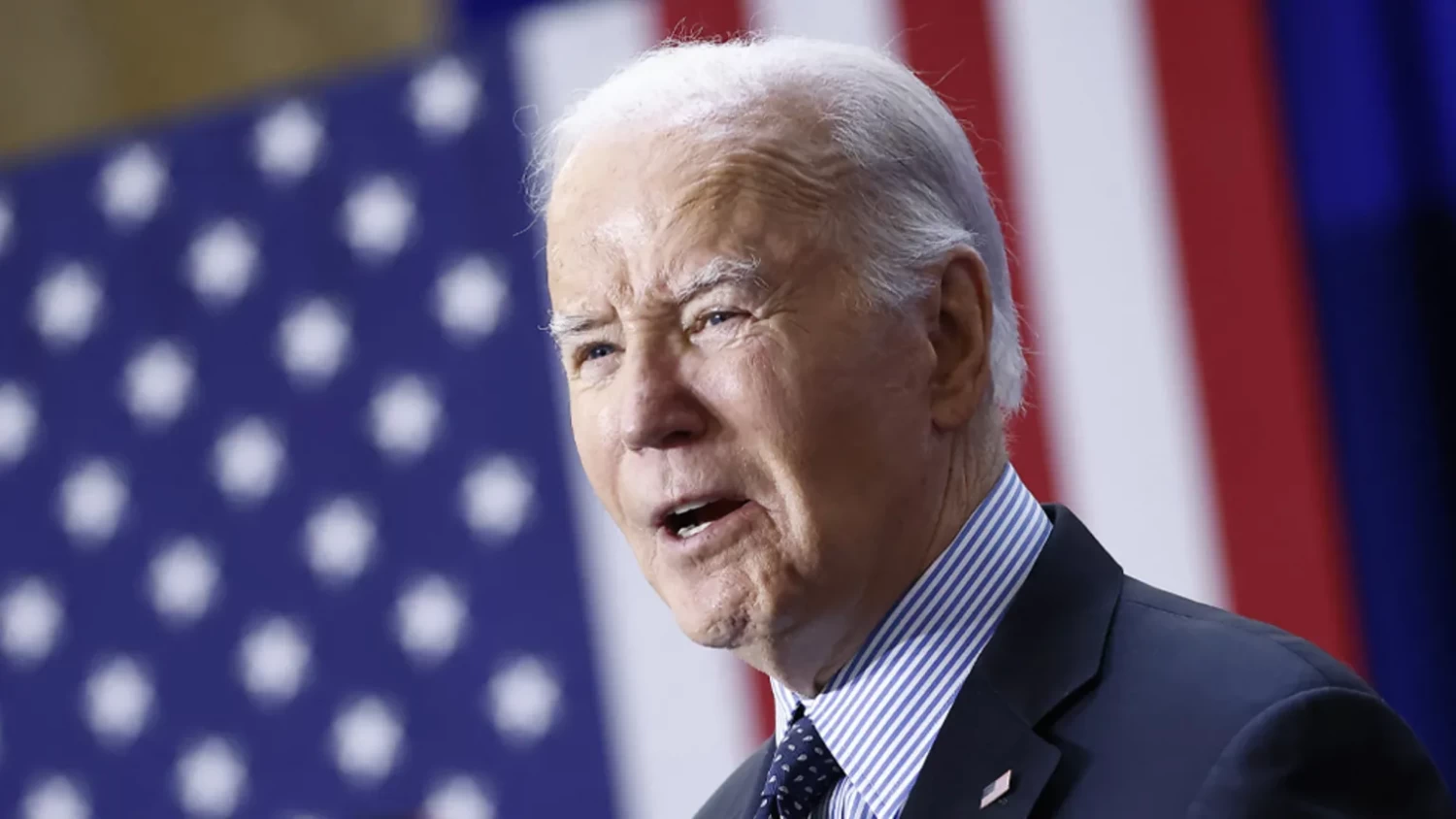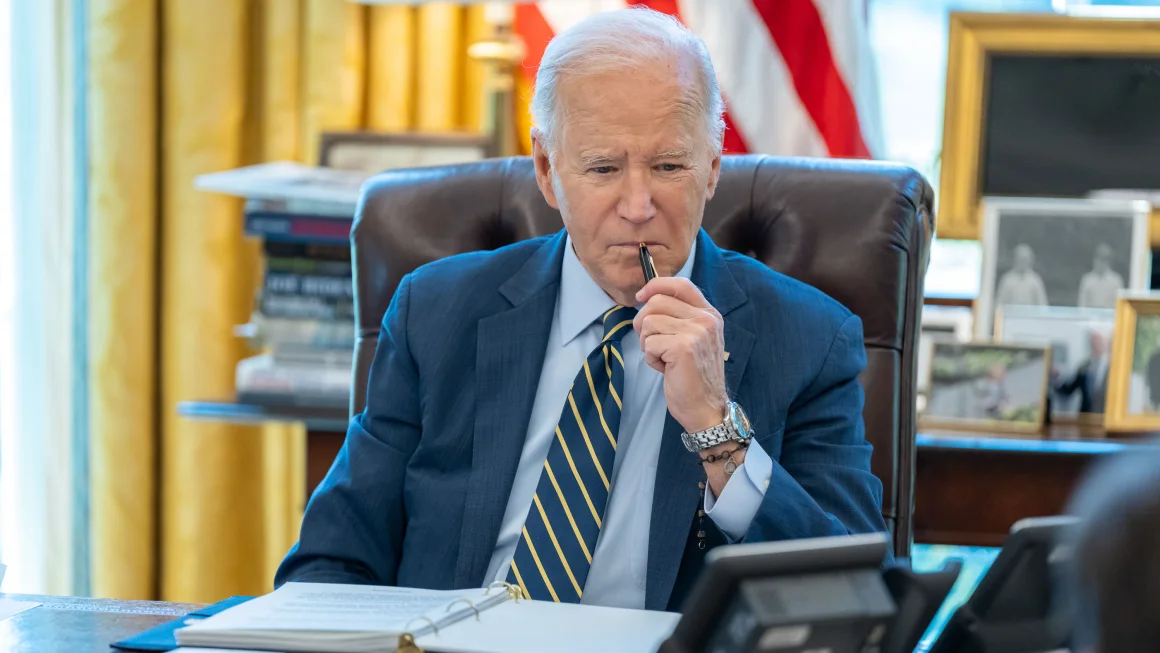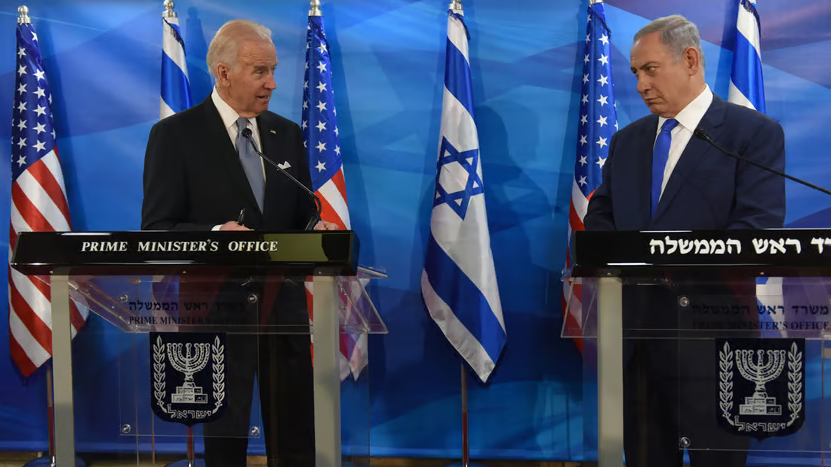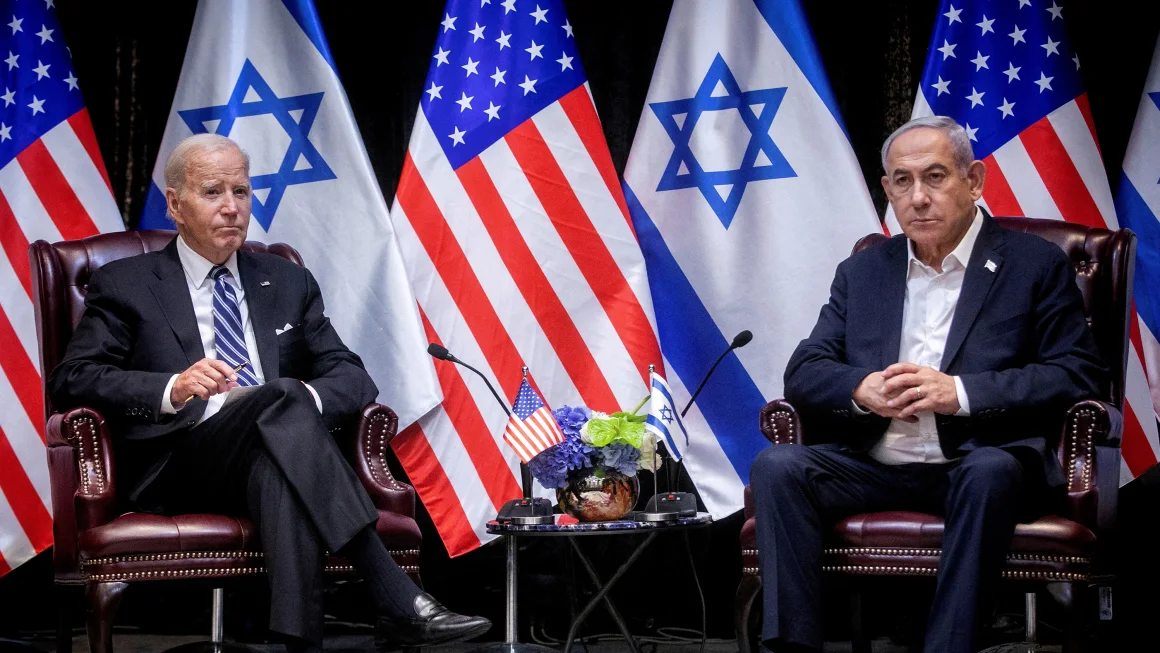Frustrations between Biden and Israeli PM Netanyahu mount
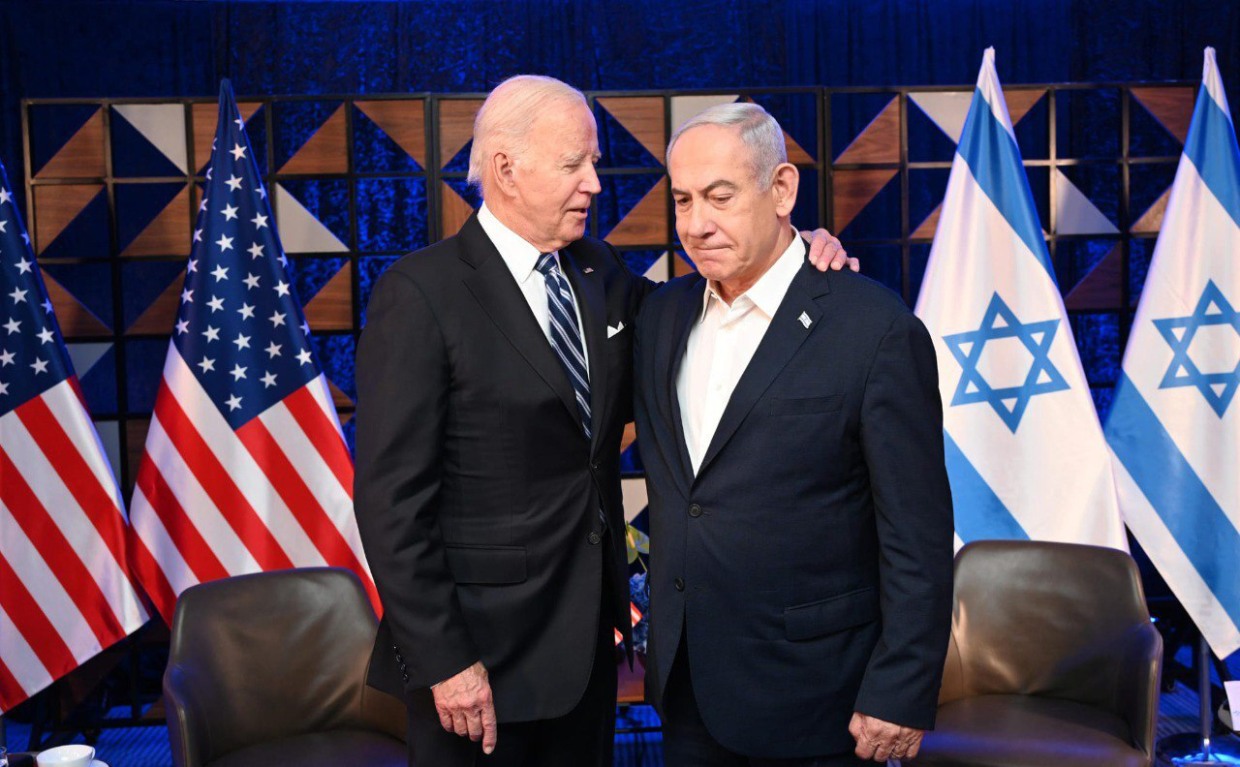
WASHINGTON — Secretary of State Antony Blinken dialed up pressure on Benjamin Netanyahu on Wednesday over the future of the Gaza Strip, laying bare the Biden administration’s growing frustrations with the Israeli prime minister’s rejection of a proposal last week.
“There’s a profound opportunity for regionalization in the Middle East, in the greater Middle East that we have not had before,” Blinken said during an interview at the World Economic Forum's summit in Davos, Switzerland. “The challenge is realizing it.”
Asked if Netanyahu is the prime minister for seizing this opportunity, Blinken said, "These are decisions for Israelis to make," adding, “This is an inflection point."
Blinken’s comments, made during an interview with New York Times columnist Tom Friedman, come just a week after a trip to the Middle East to try to get Israel and Arab leaders to agree on a path forward for Gaza once the war with Hamas ends.
The Biden administration and Netanyahu’s divisions over Israel’s handling of its war with Hamas, as well as the Israeli leader’s refusal to consider U.S. proposals for a post-war Gaza, have only become more pronounced since Blinken’s visit to Israel, according to multiple senior administration officials.
The secretary of state returned to Washington, the officials said, having been rebuffed by Netanyahu on all but one of the administration’s asks: an understanding that Israel would not attack Hezbollah in Lebanon.
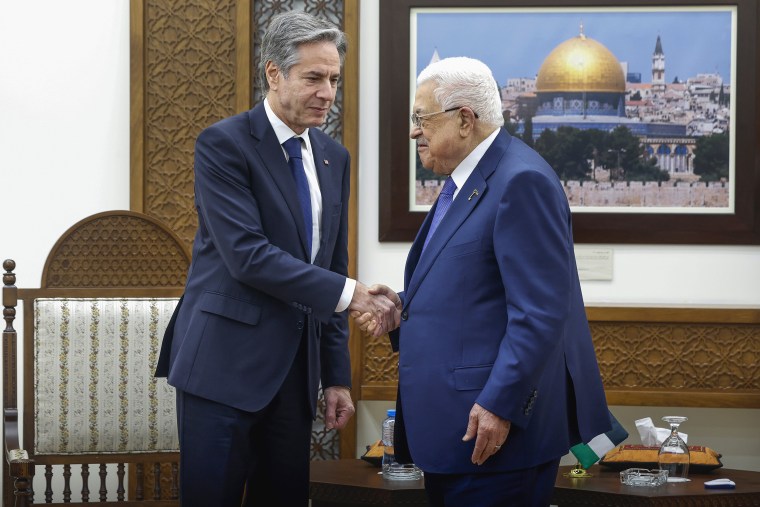
Blinken’s major achievement on the trip was getting a commitment from Saudi Crown Prince Mohammed bin Salman and four other Arab leaders to help rebuild Gaza after the war, multiple senior administration officials said. The Arab leaders also agreed to support a new, reformed Palestinian government to secure Gaza, the officials said. The Saudi crown prince offered to normalize relations with Israel as part of a Gaza reconstruction agreement — a diplomatic development Netanyahu has long sought — but only if the Israeli leader agrees to provide Palestinians with a pathway to statehood, the officials said.
Netanyahu rejected the offer, officials said, telling Blinken that he’s not prepared to make a deal that allows for a Palestinian state. And now three senior U.S. officials say the Biden administration is looking past Netanyahu to try to achieve its goals in the region. Several senior U.S. officials told NBC News that Netanyahu “will not be there forever.”
Blinken told Netanyahu that ultimately there is no military solution to Hamas, according to the officials, and that the Israeli leader needs to recognize that or history will repeat itself and violence will continue. But, the officials said, Netanyahu was unmoved.

The officials said the Biden administration is trying to lay the groundwork with other Israeli and civil society leaders in anticipation of an eventual post-Netanyahu government. In an attempt to work around Netanyahu, Blinken also met individually with members of his war Cabinet and other Israeli leaders, including opposition leader and former Prime Minister Yair Lapid, officials said.
The senior U.S. officials also said that Blinken deliberately began last week’s trip to the Middle East, his fourth since the war began, visiting the Arab nations, rather than Israel, in order to bring Netanyahu a unified Arab post-war proposal.
Two senior administration officials told NBC News that Blinken briefed President Joe Biden on his trip to the region after he returned to Washington. The United States is now following up with Arab leaders on Blinken's discussions, but the senior administration officials acknowledged that Biden's lofty hopes of reshaping the Middle East are now inextricably linked to the establishment of a Palestinian state. As a result, one senior administration official conceded, the president's aspirations for a durable regional peace may have to await a post-Netanyahu government.
A source familiar with the discussions between Blinken and Netanyahu acknowledged “the ball is in the prime minister’s court” but cautioned that the Israeli government’s current position on the Arab leaders’ proposal, including the Saudi deal, may not hold.
“I’d be careful about assuming that Israel will scuttle the deal,” this person said. “Assuming Hamas is no longer in Gaza after the war and the Saudis and other moderate Arabs would invest in Gaza and normalize relations with Israel, it would be a game changer.”
In an interview Tuesday with CNBC at the World Economic Forum, Blinken said that in order for Saudi Arabia's normalization with Israel to take place, “you have to resolve the Palestinian question.”
“Arab countries are saying ... we’re not going to get into the business, for example, of rebuilding Gaza, only to have it leveled again in a year or five years, and then be asked to rebuild it again,” he said.

Biden has repeatedly emphasized U.S. commitment to an eventual Palestinian state, the so-called two-state solution that stems from the historic Camp David Accords in 1978 between Israel and Egypt, enshrined in United Nations resolutions and later accepted by Israel and the Palestinians in 1993. Netanyahu has made a two-state solution increasingly difficult to achieve during his time in office. And since Hamas' Oct. 7 terrorist attack, the Israeli leader has flatly rejected any future state for the Palestinians, even saying last month, “I am proud that I prevented the establishment of a Palestinian state.”
Biden has fully supported Israel’s war against Hamas since Oct. 7 but has increasingly expressed concern about how Netanyahu is carrying it out.
Tensions between the two leaders are apparent in their lack of direct communication in recent weeks. In the first two months of the war, Biden spoke with Netanyahu regularly. But as the administration’s frustration with Israel’s massive use of force and denial of desperately needed supplies to Gaza grew, their conversations became less frequent, according to administration officials. Their last known call was Dec. 23, more than three weeks ago. According to U.S. officials, that call ended abruptly in a disagreement over Israel’s refusal to transfer hundreds of millions of dollars in tax revenues it has been withholding from the Palestinian Authority since the war began.
The high civilian death toll, now reaching 24,000, according to the Hamas-run Palestinian Health Ministry, is another cause of friction, as well as disagreements over the halting delivery of aid to Gaza. The U.S. has faced international pressure to do more to get Israel to allow more food deliveries and relief into Gaza. Blinken, in his meeting with Netanyahu, pressed him on the issue.
But afterward, Netanyahu delivered an unusual public rebuke of Blinken’s requests in a televised address. “We are continuing full force” until Hamas releases all of its hostages, Netanyahu said.
Keywords
Newer articles
<p>Chinese officials say they "firmly oppose" the platform being divested.</p>
Ukraine ‘will have a chance at victory’ with new US aid, Zelenskyy says
Congress passes bill that could ban TikTok after years of false starts
Ukraine war: Kyiv uses longer-range US missiles for first time
How soon could US ban TikTok after Congress approved bill?
‘LOSING CREDIBILITY’: Judge explodes at Trump lawyers as case heats up
TikTok faces US ban as bill set to be signed by Biden
Claim rapper ‘made staff watch her have sex’
KANYE WEST PLANS TO LAUNCH 'YEEZY PORN' ... Could Be Coming Soon!!!
Megan Thee Stallion’s Ex-Makeup Guru Talks. It’s Not Pretty.
